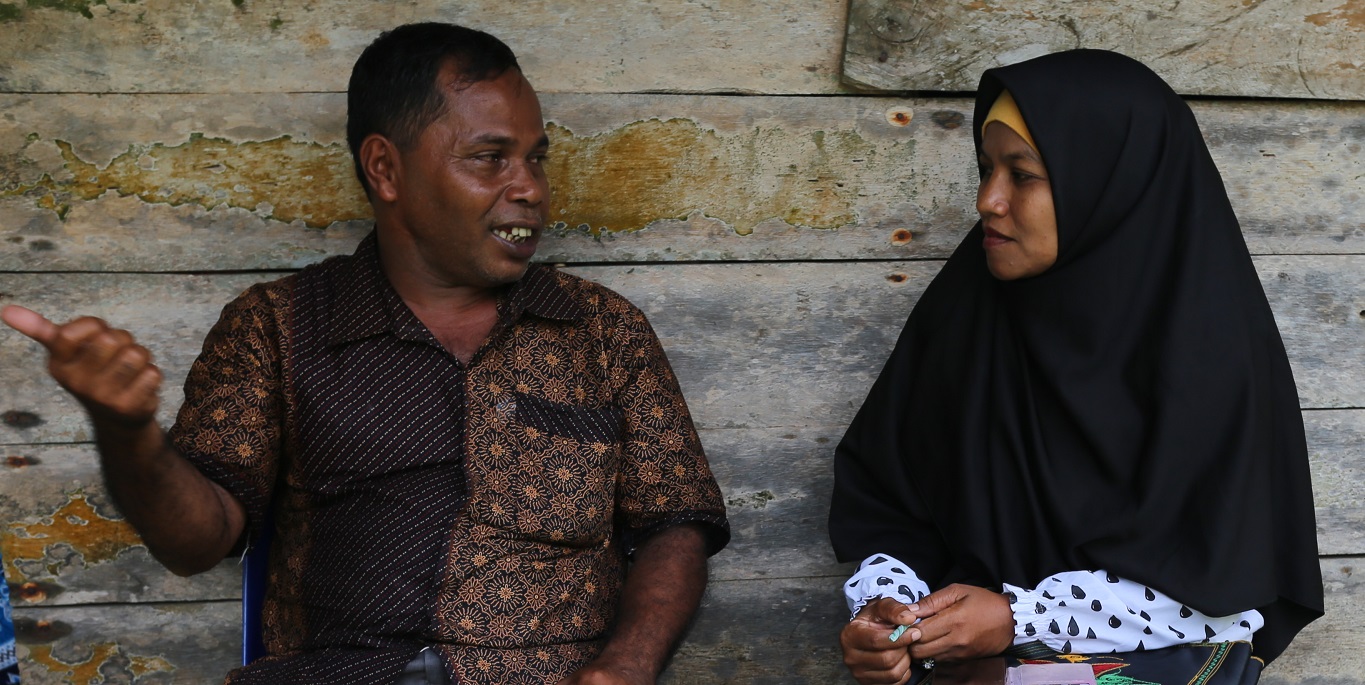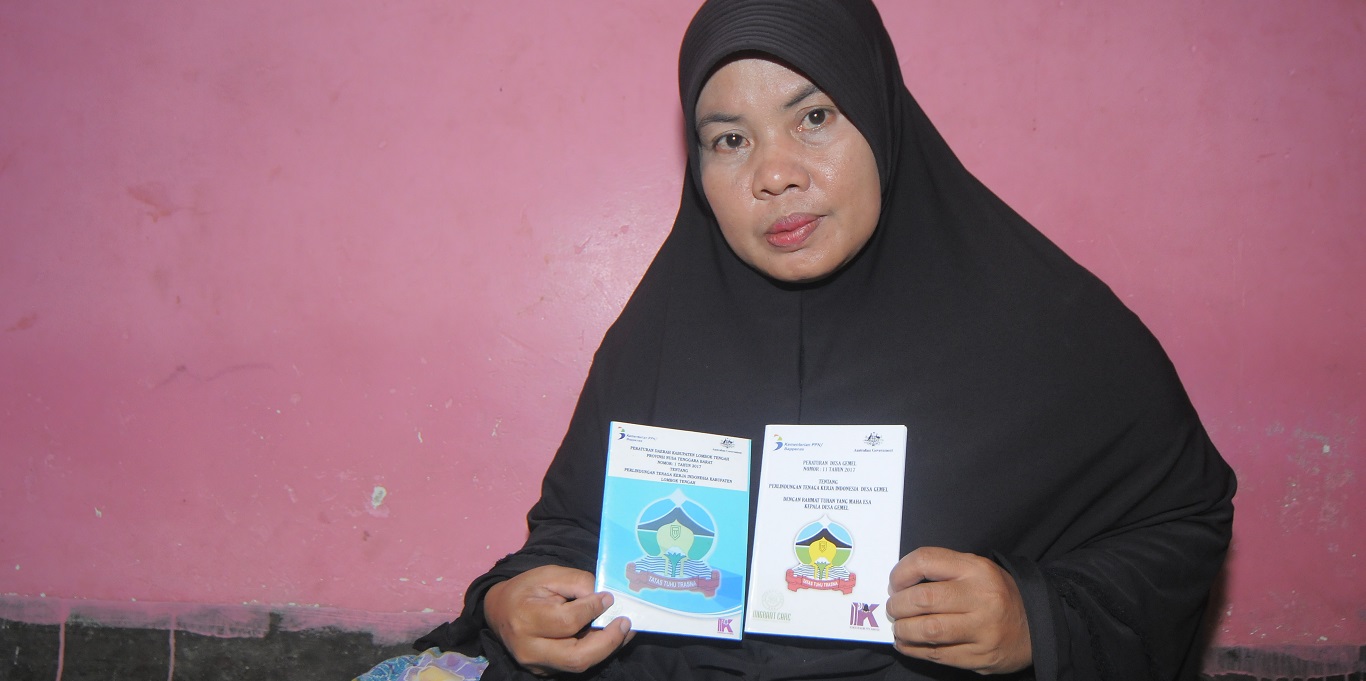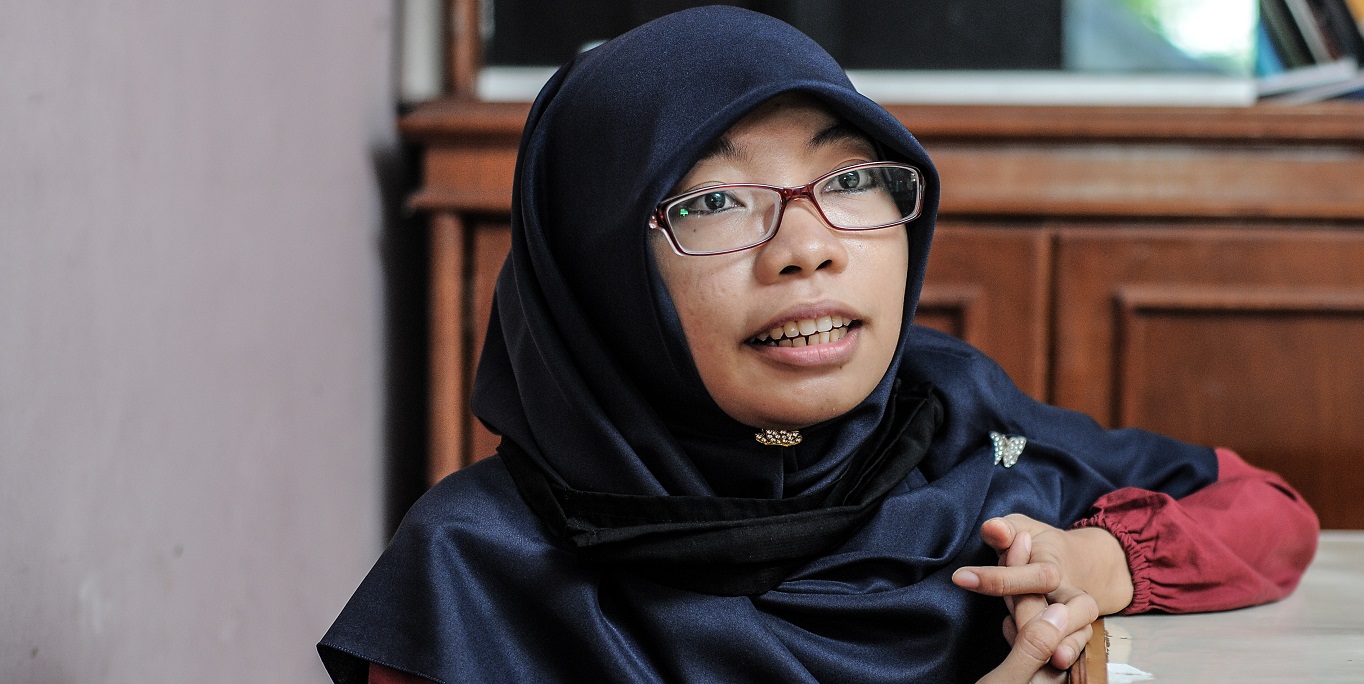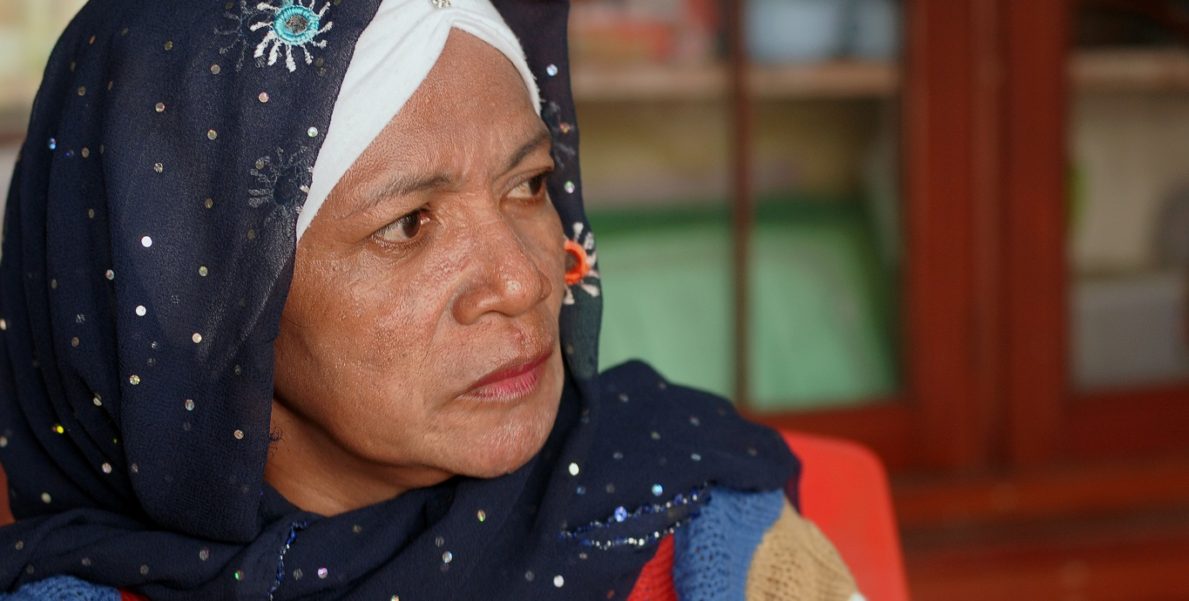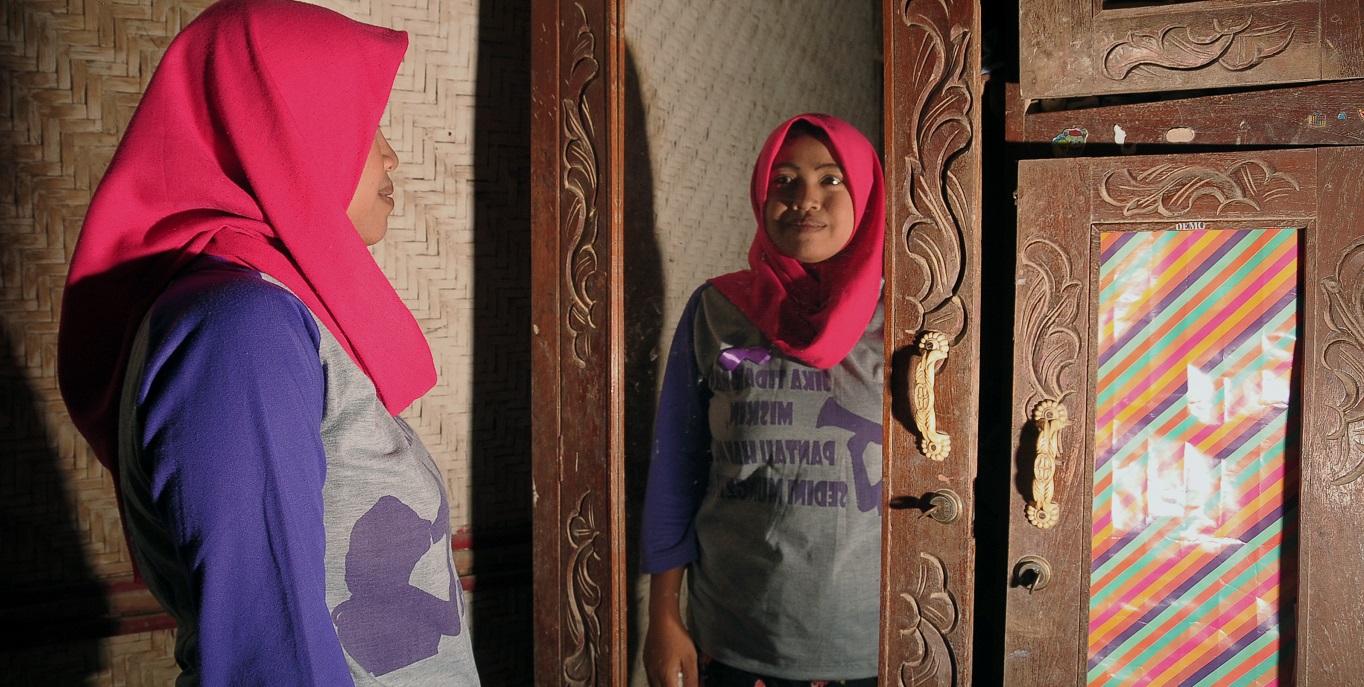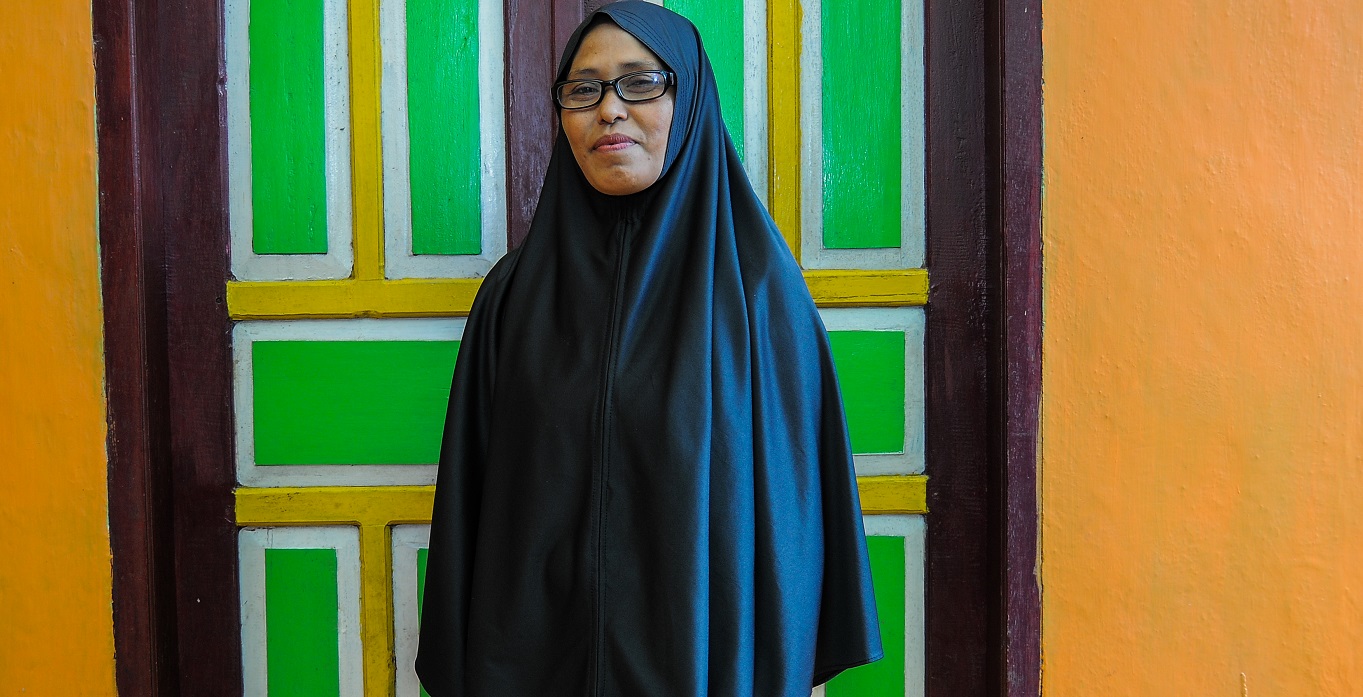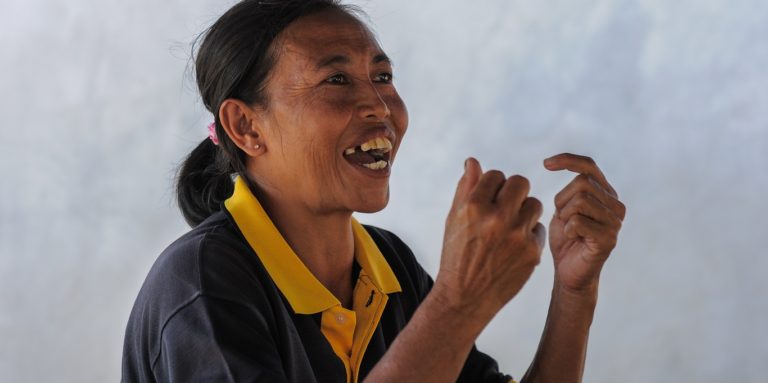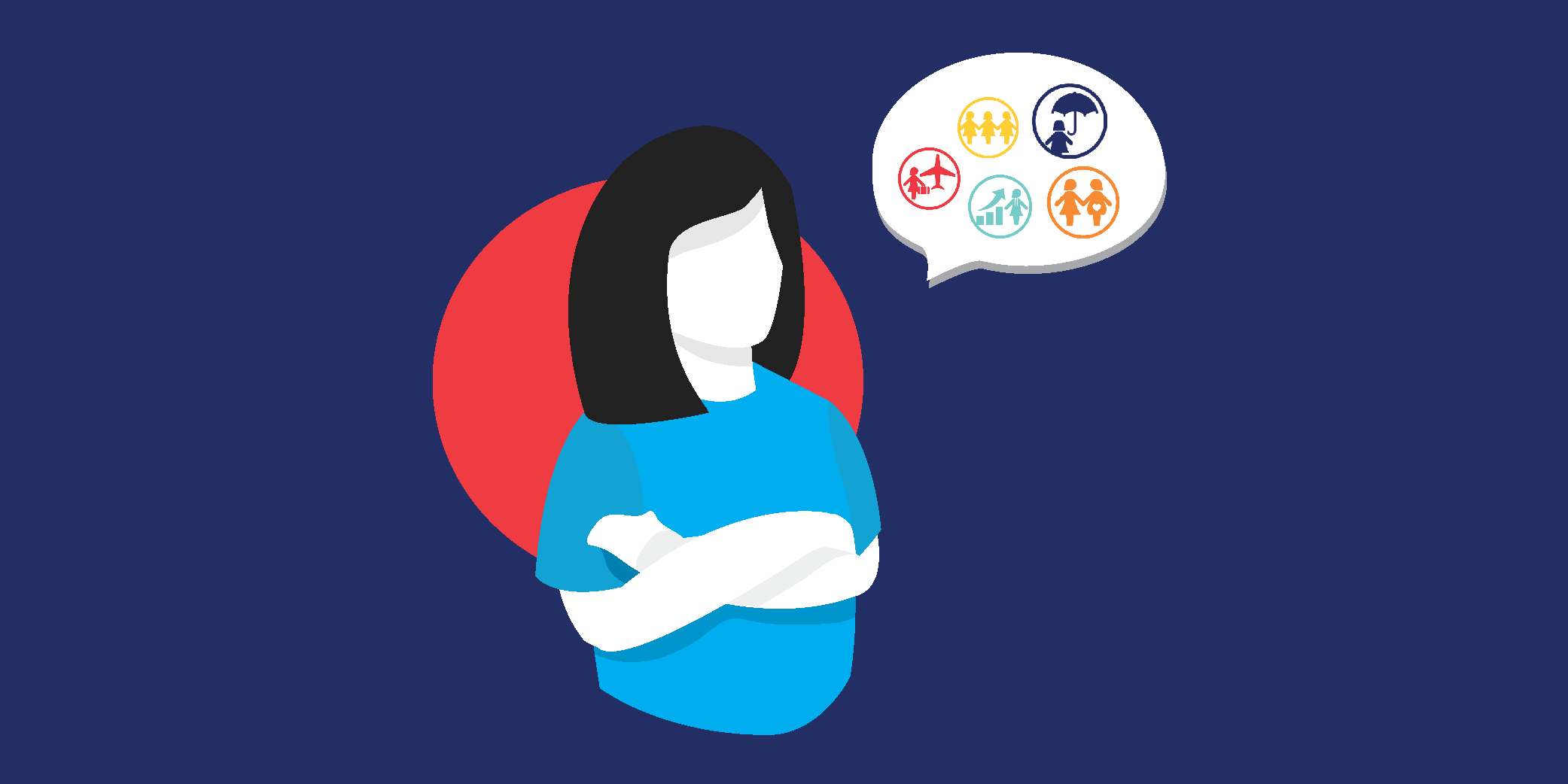Stories
Sri Bulan, a Beacon of Light from Wringinanom
12 November 2018Penulis: admin

Just like her name, which means ‘Moon’, Sri Bulan was a source of light for the people around her. Her experience as a cancer survivor inspired her to support many people to access primary health care.
Bulan lived in Wringinanom Village in the Gresik District of East Java, and devotedly assisted members of her community to access the National Health Insurance for Contribution Assistance Recipients (JKN- PBI).
Bulan did not only help to register people and guarantee that their membership cards were issued but she also often accompanied patients to ensure that they received the care they needed. The cheerful character was known by many of the doctors and nurses that work at the Ibnu Sina Hospital in Gresik and the Dr. Soetomo Hospital in Surabaya.
Bulan’s enthusiasm never left her since she first joined the Women’s School or Sekolah Perempuan in 2014. Bulan was able to learn a lot through this informal education institute that was created by the KAPAL Perempuan Institute, MAMPU partner for the theme of improving access to social protection.
“I came to understand what women’s participation and freedom meant, I also had the chance to meet many new people,” said the 29-year-old woman. Bulan’s confidence began to return as she recovered from cancer.
Bulan’s battle in fighting against cancer began in 2009. At that time, she still lived with her husband who was a smoker. The house was always filled with cigarette smoke which made it hard for Bulan to breathe and made her nose bleed.
One day when she was having a bath, she found a lump in her neck; a clinical examination stated that the lump was a swollen gland.
“The lump did not hurt. But when I had a cold, my nose would bleed. I took medicine, but the lump just grew larger,”
Bulan then went in for a checkup at the Reksowaluyo Hospital in Mojokerto where she underwent a biopsy. She was later diagnosed with stage four cancer in her nasopharynx and referred to the Dr. Soetomo Hospital in Surabaya for treatment.
In the midst of this struggle, Bulan also experienced neglect and domestic violence from her husband who she had married at the age of 17. Her husband did not provide economically for the family and did not contribute to paying for the costs of Bulan’s treatment. Bulan, because she had lost her Community Health Insurance Card, had to obtain a Financially Incapable Certificate in order to be able to access treatment.
“The treatment was indeed free, but I needed money for transport to and from the hospital and to eat. My father covered all of the costs; he was forced to sell his cow and goat to pay for the treatment,” said Bulan.
The radiotherapy and chemotherapy treatment weakened her physically and her ability to hear, speak and even think started to decline. Suffering from low self-esteem, Bulan would rarely leave her house.
A Shining Comeback
Taking part in Sekolah Perempuan brought Bulan out of her reclusive stage. Bulan began to develop skills, taking part in activities ranging from collecting data of members of the school to documenting the feminization of poverty in her village. She also joined in a Javen dance performance to commemorate the 70th Anniversary of Indonesia’s Independence Day after being invited by the Wringinanom District Government.
Specifically, Bulan was interested in social protection and especially health insurance. She believed that many sick people lose hope and do not want to undergo treatment because of the expensive costs.
Equipped with new knowledge from Sekolah Perempuan, Bulan began to spread information to her community about social protection for health. Even though in the beginning many of the people in the community did not believe her, and thought that the National Health Insurance (JKN) card was just a normal card, eventually they began to use the card to access medical treatment. Bulan’s perseverance led to her being appointed as a coordinator of Sekolah Perempuan members, accompanying them to undergo VIA tests at the Ibnu Sina Hospital in Gresik.
The long and challenging process that Bulan had undergone in order to obtain her JKN card made her adamant that other women in her community must have access to essential health services.
“It is important that women have JKN so that their health is insured. Indonesian women must be aware that this is a part of the fulfilment of their fundamental civil rights and important so that all Indonesian citizens are healthy,” said Bulan, who was declared free of cancer in August 2017.
Bulan’s enthusiasm coloured her life and the lives of the people around her until the end of her days. Bulan passed away on the 24 August 2018, just as the sun was setting and giving way for the moon to rise.
Rest in peace, Sri Bulan. Your dedication to helping others will always be remembered.



